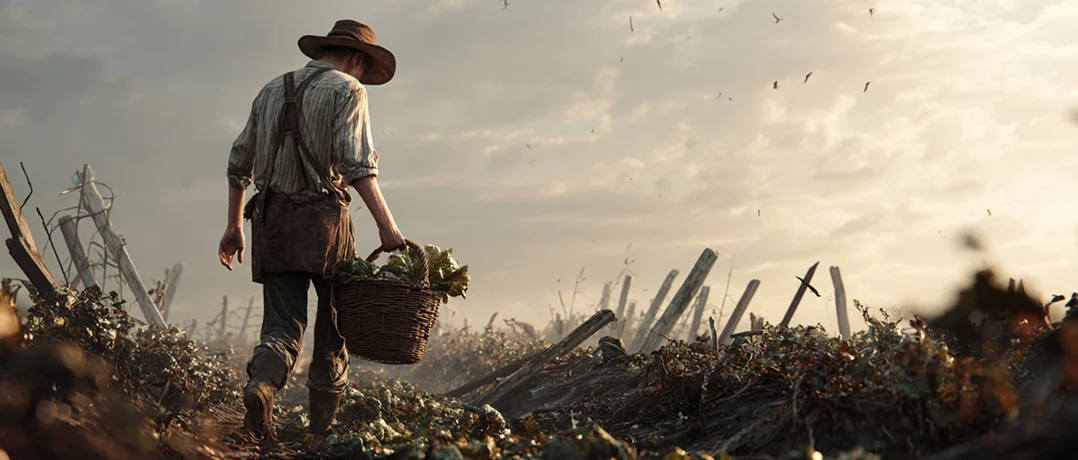Two years after the bombings, southern Lebanon’s agriculture remains devastated by destruction and toxic contamination, threatening its future.
Southern Lebanon: Agriculture gasping for breath after the war
Southern Lebanon: Agriculture gasping for breath after the war


Two years after the bombings, the agricultural landscape of southern Lebanon lies in ruins: scorched lands, uprooted century-old trees, and soil contaminated with phosphorus. The toll is devastating, with irreversible losses threatening the survival of farms and rural communities alike.
The war has turned once-productive fields into battlefields. For farmers in southern Lebanon, agricultural seasons no longer follow the rhythm of nature, but of fear. Since the military operations, the sector has faced a double disaster: physical destruction and chemical contamination. Two years on, what remains is a grim post-conflict agricultural report one written in numbers, despair, and scattered hope.
Material destruction: land, trees, and crops
According to a joint assessment by the FAO and the Ministry of Agriculture, Lebanon’s agricultural sector suffered $118 million in direct damage and $586 million in total losses, with the South identified as one of the hardest-hit regions.
Data from the CNRS (National Council for Scientific Research) indicate that 2,192 hectares of farmland were burned and agricultural activities were disrupted across 130,000 hectares. The white phosphorus attacks left behind a toxic footprint: more than 195 incidents were recorded over 918 hectares, according to the NGO Green Southerners. The plant life paid a high price. Ancient olive groves, citrus orchards, and vegetable farms were decimated. Al Jazeera reported that 10 million square meters of land were burned in the South and that 15,000 olive trees were destroyed.
Agricultural and livestock losses
The animal sector suffered equally dramatic losses. According to a UNDP report, about 200,000 poultry and 700 head of livestock were killed, while 60 greenhouses and 250 beehives were destroyed. The World Bank/DaLA report estimated that, over a 12-month period, agricultural losses reached $1.1 billion, largely due to the abandonment or destruction of vast tracts of farmland.
Before the conflict, agriculture accounted for up to 80% of the local economy in parts of southern Lebanon. Today, that backbone of rural life has nearly collapsed.
Chemical contamination and long-term impact
The use of white phosphorus not only caused immediate fires but also poisoned the soil, water, and vegetation. A study by the American University of Beirut (AUB) found that phosphorus oxides create progressive soil toxicity, later absorbed by cultivated plants.
According to the Ministry of Agriculture, fires caused by phosphorus and other munitions damaged 1,042 households across the South. The health threat is equally alarming contaminated soil and water risk entering the food chain, endangering both rural communities and food safety.
Resilience, obstacles, and the path to recovery
Some farmers are trying to replant and reclaim what little land remains, but they face a brick wall: limited aid, scarce seeds, degraded soil, and constant fear of renewed hostilities.
The FAO–Ministry report estimates reconstruction needs at $263 million, with $95 million to be prioritized for 2025–2026. Yet trust has eroded. The mass exodus of rural populations, abandoned lands, and the decline in agricultural labor make recovery painfully difficult.
Two years after the war, southern Lebanon’s agricultural toll is catastrophic: thousands of hectares destroyed, hundreds of thousands of animals lost, lands poisoned by phosphorus, and farmers on the brink of despair.
To prevent the South from becoming a long-term “agricultural dead zone,” Lebanon faces a double emergency, physical rehabilitation and chemical decontamination. Otherwise, generations of farmers may one day inherit only barren soil and fading memories of fertile fields.


